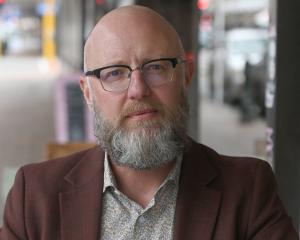Optometrists are calling on ophthalmologists to let them do more to relieve strain in New Zealand’s struggling public hospital eye departments.
New Zealand public health eye services are centred on specialist ophthalmologists working in hospitals. Optometrists, who train for five years, are largely based in the community in private practice. New Zealand Association of Optometrists national director Lesley Frederikson said optometrists needed access to public DHB funding, and ophthalmologists need to be more open to working with optometrists.
"We are all aware of the pressure on hospital eye services but I think the current system is a failure when people in the system go blind.
"Surely it might be better to refer back to community optometrists any people for whom the hospital is not able to give follow-up appointments at the time they are due.
"NZ has at its disposal a large, ready-to-go workforce of more than 400 optometrists who are authorised prescribers of medicines, which is the same designation as medical practitioners," Dr Frederikson said.
Habit and tradition had stymied the necessary change.
"There are still some ophthalmologists who do not fully comprehend the current competencies required for registration as an optometrist authorised prescriber, and as a consequence hold outdated views on the care that optometrists can provide."
Advocates for change say there is scope for optometrists to work in hospitals, and for optometrists to be funded for public work in the community.
The Southern District Health Board is urgently recruiting two hospital-based prescribing optometrists to help deal with the crisis in its ophthalmology departments. Thousands of people are waiting for overdue appointments in Otago and Southland, and in Southland the problem dates to at least September 2014. Southern, which had 30 cases of ophthalmology patient harm in one year alone, is thought to be the tip of a bigger problem.
Royal Australian and New Zealand College of Ophthalmologists fellow Dr Shenton Chew, an Auckland specialist, said the profession was happy to work closely with optometrists, but it had to be done properly in a well planned way, he said. One barrier was funding, which needed to be flexible to enable collaboration. Community-based optometrists needed to have collegial relationships with ophthalmologists, and needed some hospital experience. Dr Chew would oppose any move to "dump a whole lot of our low-risk patients out" into the community. Relations between the two professions was better in New Zealand than in Australia.
"The collaboration in NZ has been a bit warmer, which is good. I’ve got optometrists working in my clinics in the hospital and it’s great to have."
Dr Chew said there were likely to be far more instances of harm in struggling ophthalmology departments than had been publicly disclosed.
The college is encouraging the Ministry of Health to take a leadership role, rather than adopting a hands-off approach.
"Everyone needs help and a national steering plan would help.
"Instead of every individual DHB coming up with their own individual solution."
In a statement, a Ministry of Health spokeswoman said DHBs had flexibility about how they provide eye services, and some used optometrists.












